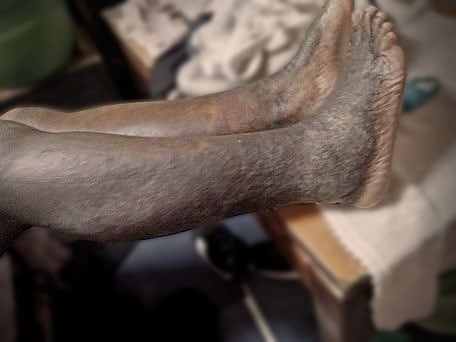Is That Really Psoriasis?
Psoriasis doesn't discriminate. People of all races and skin color are affected by this condition and each comes with its own unique set of challenges.
By understanding how psoriasis affects skin tones differently, people with the condition can better manage their disease and communicate with their doctors about the effect the disease has on them.
Understanding psoriasis
Not only is psoriasis an autoimmune disease it is also a systemic disease. It can affect a single part of the body or the whole body. One of the most prominent symptoms that indicate the presence of psoriasis is plaques.
Psoriasis plaques appear red in color on lighter skin. On darker skin, plaques can appear purple or even black. Each individual suffers differently and plaques which can range from small patches to covering the whole body. Plaques can appear in many sensitive places as well including the scalp, inside the mouth, and genitals.
Different skin, different looks
In lighter-skinned individuals, psoriasis has a pink or red look and the plaques tend to be silvery-white in color. This type of psoriasis most often appears with erythema. For psoriasis to be considered severe, it has to appear on more than 10% of the whole body.
Dark skin individuals have less noticeable reddening of their skin. This makes it difficult for doctors to identify the affected areas. The said areas could also be in different shades such as grey or dark brown and more difficult to identify inflammation.
The quality of life is the same
Regardless of skin tone, everyone with psoriasis should try to find ways to improve their quality of life. Psoriasis is a very visible condition, and no one is more aware of it than you. People may think it’s contagious, or they may stare at your skin, and this may make you feel embarrassed and want to self-isolate.
For decades, psoriasis has been wrongly diagnosed when it comes to people with darker skin. This hinders the darker-skinned patients from getting the proper treatment. Whether you are light or dark-skinned the reality is the symptoms do not vary that much.

This was what I used to look like. I was told many times that I didn’t have psoriasis. I have had to have six biopsies to prove that I did have this disease.
We need to reach out to other psoriasis patients and support groups. Especially those that involve people with darker-skin and address their unique challenges. We need everyone's support in getting the help that we need.

Join the conversation